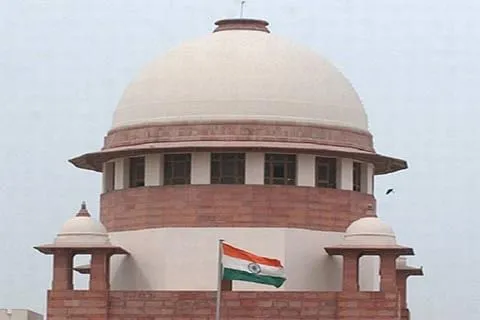The Supreme Court Monday directed district courts across the country to adopt video-conferencing prescribed by the concerned high Court for adjudicating the cases in view of COVID-19 pandemic.
“The concerned courts shall maintain a helpline toensure that any complaint in regard to the quality or audibility of feed shallbe communicated during the proceeding or immediately after its conclusionfailing which no grievance in regard to it shall be entertainedthereafter,” a bench headed byChief Justice Bobde said.
The bench directed that courts shall duly notify and makeavailable the facilities for video-conferencing for such litigants who do nothave the means or access to such facilities.
“If necessary, in appropriate cases courts may appointan amicus-curiae and make video conferencing facilities available to such anadvocate,” it said, adding, “Until appropriate rules are framed bythe high courts, video conferencing shall be mainly employed for hearingarguments whether at the trial stage or at the appellate stage.”
The apex court also made it clear that in “no caseshall evidence be recorded without the mutual consent of both the parties byvideo-conferencing”.
The bench said if it is necessary to record evidence in acourtroom, the presiding officer shall ensure that appropriate distance ismaintained between any two individuals in the court.
It directed that the presiding officer shall have the powerto restrict entry of persons into the courtroom or the points from which thearguments are addressed by the advocates.
“No presiding officer shall prevent the entry of aparty to the case unless such party is suffering from any infectious illness.However, where the number of litigants are many the presiding officer shallhave the power to restrict the numbers.
“The presiding officer shall in his discretion adjournthe proceedings where it is not possible to restrict the number,” thebench said.
While making it clear that “these directions shalloperate until further orders”, the top court said that these directiveshave been issued in “furtherance of the commitment to the delivery ofjustice.”
“Access to justice is fundamental to preserve the ruleof law in the democracy envisaged by the Constitution of India,” the benchsaid.
“The challenges occasioned by the outbreak of COVID-19have to be addressed while preserving the constitutional commitment to ensuringthe delivery of and access to justice to those who seek it,” the benchsaid, adding, “Court hearings in congregation must necessarily become anexception during this period.”
It said that cooperation of all the concerned stakeholders,like judges, lawyers and litigants, is indispensable in successfulimplementation of these directions to ensure that the judiciary rises to facethe unique challenge presented by the outbreak of COVID-19.
It said every individual and institution is expected tocooperate in the implementation of measures designed to reduce the transmissionof coronavirus and the scaling down of conventional operations within theprecincts of courts is a measure in that direction.
The bench said thatmodern technology has enabled courts to enhance the quality and effectivenessof the administration of justice and Indian courts have been “proactive inembracing advancement in technology in judicial proceedings”.
A slew of directions were passed by the bench which has taken suo motu (on its own) cognizance of a letter written by senior advocate and former Supreme Court Bar Association (SCBA) president Vikas Singh, who has suggested measures for use of technology for conducting hearings in the courts.






